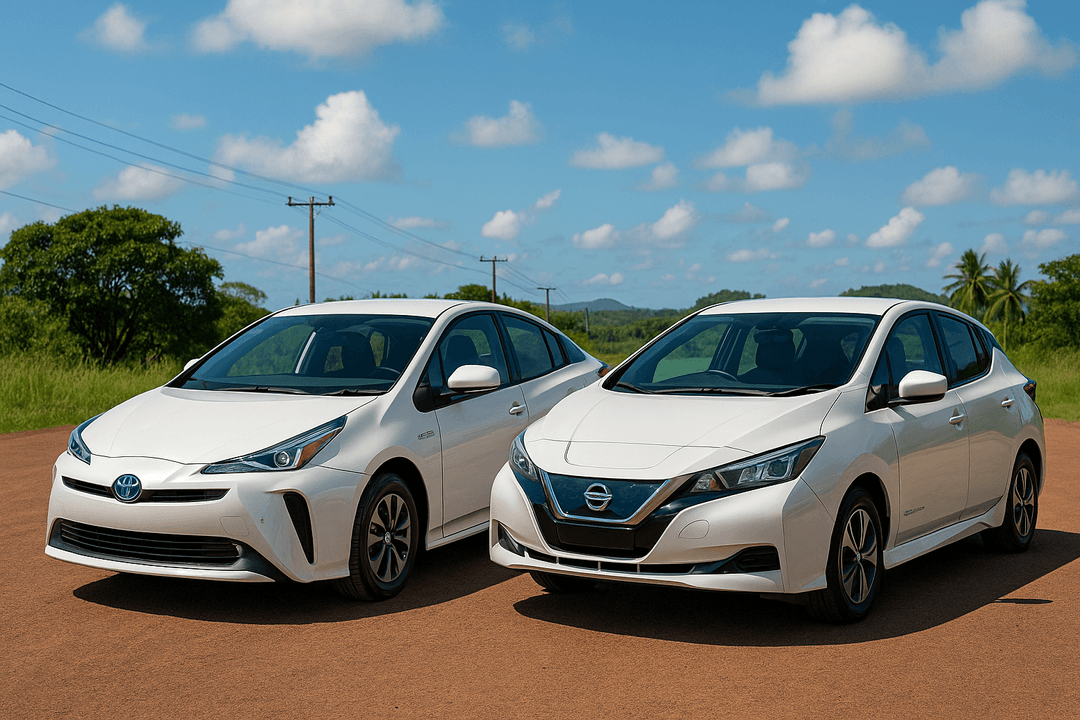Hybrid vs. Electric Cars: Best Choice for Botswana Drivers?
Read Our Blogs today and Learn More

Loading ...

Loading ...
Choosing between hybrid and electric vehicles (EVs) can be a challenging decision for Botswana drivers. Both options offer impressive environmental benefits, fuel efficiency, and innovative technologies, but each comes with distinct advantages suited to different driving needs and lifestyles. Carbarn Botswana explores the differences between hybrid and electric cars, helping you make the best choice for your requirements. Hybrid vehicles combine traditional petrol engines with electric motors, delivering remarkable fuel efficiency and reduced emissions. Fuel Efficiency: Significantly lower fuel consumption compared to traditional petrol vehicles. Range: Extended driving range without dependency on charging infrastructure. Cost Efficiency: Typically lower upfront costs compared to electric vehicles. Botswana drivers who frequently travel long distances and prefer minimal reliance on charging stations. Electric vehicles operate exclusively on electric power, producing zero emissions and providing quiet, smooth driving experiences. Zero Emissions: Completely environmentally friendly, significantly reducing your carbon footprint. Lower Maintenance: Fewer moving parts result in reduced maintenance costs. Government Incentives: Potential for government incentives promoting electric vehicle ownership. Drivers with regular access to charging infrastructure and those primarily commuting within urban areas like Gaborone. Hybrid vehicles offer greater flexibility with limited need for charging infrastructure. Electric vehicles require reliable and accessible charging stations. Hybrids suit drivers regularly traveling longer distances, offering convenience without range anxiety. EVs are ideal for city commuters with predictable, shorter daily routes. Hybrids generally have lower upfront costs, making them accessible for budget-conscious buyers. Electric vehicles, while initially more expensive, offer significant long-term savings on fuel and maintenance. Purchasing from Carbarn Botswana ensures: Quality Assurance: Direct imports from Japan, rigorously inspected for quality. Transparent Pricing: Competitive prices with clear financing options. Nationwide Delivery: Reliable delivery service across Botswana. Dedicated Customer Support: Comprehensive assistance from purchase to after-sales care. The choice between hybrid and electric vehicles depends on your specific driving habits, access to infrastructure, and budget considerations. Whether prioritizing flexibility and range with a hybrid, or sustainability and lower running costs with an EV, Carbarn Botswana has the perfect vehicle to meet your needs. Visit Carbarn Botswana today to explore our range of hybrid and electric vehicles tailored specifically for Botswana drivers.Understanding Hybrid Cars
Advantages of Hybrid Cars:
Ideal For:
Exploring Electric Cars (EVs)
Advantages of Electric Cars:
Ideal For:
Key Considerations for Botswana Drivers
Infrastructure:
Driving Patterns:
Economic Factors:
Why Choose Carbarn Botswana?
Final Thoughts: Hybrid or Electric?